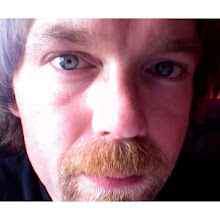The Venerable Hsuan Hua, a Ch'an and Tripitika master from China, arrived in America in the early 1960s to propagate the Dharma in the West. As he observed and studied the trends and currents of contemporary thought, he showed little enthusiasm for what seemed to him the exaggerated claims of modern science—theoretical or applied. He said, “Within the limited world of the relative, that is where science is. It’s not an absolute Dharma. Science absolutely cannot bring true and ultimate happiness to people, neither spiritually nor materially.” This is strong criticism that portrays science as a discipline limited to relative truths, and as an unsatisfactory way of life. In another essay, he wrote:From Buddhism and Science: Probing the Boundaries of Faith and Reason by Dr. Martin J. Verhoeven
Look at modern science. Military weapons are modernized every day and are more and more novel every month. Although we call this progress, it’s nothing more than progressive cruelty. Science takes human life as an experiment, as child’s play, as it fulfills its desires through force and oppression.
In 1989, Venerable Walpola Rahula, a Theravadin monk from Sri Lanka, also warned that daily life is being permeated by science. He cautioned, “We have almost become slaves of science and technology; soon we shall be worshipping it.” His comments come well into the final decades of the twentieth century, when many people had in effect turned science into a religious surrogate. The Venerable monk observed, “Early symptoms are that they tend to seek support from science to prove the validity of our religions.” Walpola Rahula elaborated on this point:
We justify them [i.e. religions] and make them modern, up-to-date, respectable, and accessible. Although this is somewhat well intentioned, it is ill-advised. While there are some similarities and parallel truths, such as the nature of the atom, the relativity of time and space, or the quantum view of the interdependent, interrelated whole, all these things were developed by insight and purified by meditation.
Religion East and West, Issue 1, June 2001, pp. 77-97

No comments:
Post a Comment